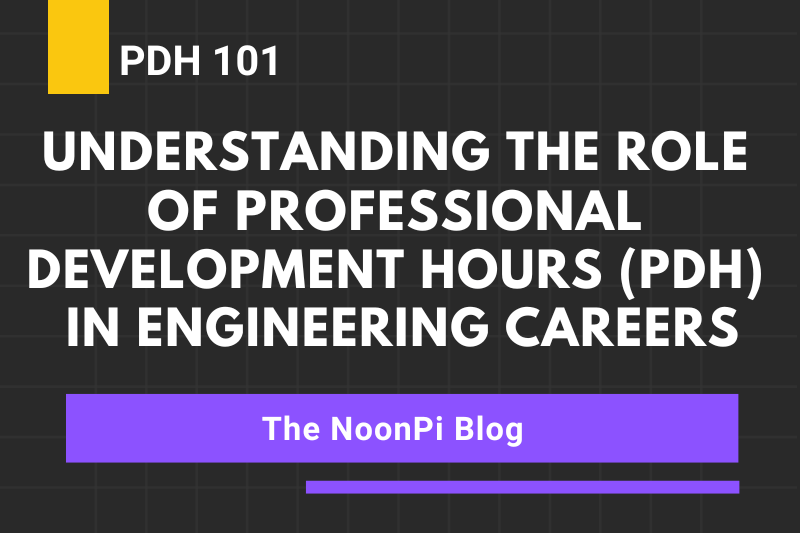As a young engineer, you’re stepping into a dynamic profession that requires constant learning and adaptation. One way you’ll maintain your professional competency and ensure career progression is through Professional Development Hours (PDH). This article provides a comprehensive guide on how to strategically plan and acquire PDH, helping you to enhance your job prospects, prepare for future leadership roles, and thrive in your engineering career.
The Importance of PDH for Young Engineers
PDH represents the time you invest in learning activities to hone your skills and update your knowledge. As a fresh engineering graduate, you may have the latest academic knowledge, but the professional world demands practical application and continual updating of this knowledge. Hence, PDH is critical in ensuring you stay relevant and effective in your engineering practice.
Strategically Planning Your PDH
When it comes to PDH, it’s not just about meeting a requirement; it’s about strategically choosing courses that align with your career goals and current job role. Here are some tips to help you select the right courses:
- Alignment with Career Goals
If you have a specific career path in mind, choose courses that give you the skills and knowledge needed for that path. For example, if you see yourself moving into a management role, consider courses on project management or leadership. - Current Job Relevances
Courses that directly relate to your current job responsibilities can improve your performance and make your daily work easier. They can also demonstrate your commitment to your role, which can be advantageous during performance evaluations. - Expanding Knowledge Base
Don’t limit yourself to your immediate area of work. Broadening your horizons by learning about other areas of engineering can make you a more versatile engineer and open up new career opportunities.
Balancing Time and Learning
As a young engineer, you might feel overwhelmed by your new job’s responsibilities, and finding time for PDH may seem challenging. But remember, learning is a journey, not a sprint. Here are a few tips on balancing your time:
- Set a Regular Learning Schedule
Dedicating a consistent time for learning can make it a habit. It could be one hour every week or a half day on the first Saturday of each month. Find what works best for you and stick to it. - Leverage Online Learning
Online courses offer great flexibility. You can learn at your own pace, at a time and place convenient for you. - Mix and Match Learning Styles
Combine different learning methods to keep it interesting. Along with online courses, attend webinars, workshops, or conferences.
Leveraging PDH for Career Advancement
The skills and knowledge gained through PDH can significantly improve your job prospects. Your commitment to continuous learning can set you apart from your peers, impress your superiors, and possibly fast-track your promotions.
Additionally, the broad skill set acquired through diverse PDH courses can prepare you for leadership roles in the future. As a leader, you will need not only technical skills but also soft skills like communication, leadership, and project management, all of which can be learned through PDH courses.
In Conclusion
As a young engineer, strategically planning and acquiring PDH can provide immense value to your professional growth. By carefully choosing relevant courses, efficiently managing your time, and leveraging your PDH for career advancement, you can ensure a prosperous and fulfilling engineering career. Remember, in the fast-paced world of engineering, the best investment you can make is in yourself and your continuous learning.









Leave A Comment